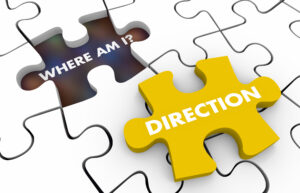Maintaining Focus and Alignment about What Matters Most to You

Is it possible that you already possess a superpower that once activated, becomes a super skill? Most of us only associate superpowers with fictional superheroes.
A less known fact is that each of us has the ability to tap into this unique super skill. By slowing down and writing things down, as opposed to keeping them spinning around in your mind, the 4S process can help you more clearly see a situation that you’ve been thinking about, but don’t have all the pieces of the puzzle to move forward. A component of the CoreSelf Map helps you take inventory of your resources and take proactive efforts using the 4S Framework: Situation, Strengths, Struggles, and Strategies.
The 4S exercise represents an extraordinary capability that our brains possess to activate the monitoring function we call the Internal Observer that records all of our actual and alternative choices, with a tether to your long-term values. The writing process is instrumental in activating one’s Internal Observer, provided that one doesn’t become too deliberate. Just put pen to paper and let it flow.
Our feelings, beliefs, and thoughts become observations when written down in black and white. CoreSelf Mapping and CoreSelf Journaling are techniques for switching on one’s Internal Observer. By asking these important questions: Where am I now? Where do I want to be? and How do I get there? The CoreSelf Mapping process activates your super skill by tapping into your Internal Observer, leveraging the narrative writing process.
Throughout the writing process, it’s best for one to not just consider “What am I up against” but also to look at the big picture—the 30,000-foot view—and ask “What do I see that’s going on? These situations aren’t just about walls that you are pushing against, but also positive alternatives that are available to you. That’s what makes completing the 4S’s so powerful.

Speaking of a Situation. Be as specific about the situation as possible. This helps the brain move past the ‘first image’. Think in terms of being a photographer documenting an accident. You get the first all-inclusive shot and then your brain can go to other parts of the larger scene that you’re in to focus on other possibilities. So, in terms of Journaling, the first few words you write down should answer the question, “Where am I?” As you continue to write, it becomes much more about what else is there and what else you want to learn about or practice using. Having more specifics about your Situation gives you a solid push-off point for the rest of the journaling experience.
Are you ready to increase your Focus and Alignment about What Matters Most to You?
Contact us today!
About the Authors
Jonathan Thomas, MSW
Whether at the potter's wheel, coaching medical professionals and teams, or in his private counseling practice, Jonathan Thomas has spent his life molding, shaping and creating something beautiful and new.
Tim Preston
As a successful serial-entrepreneur and angel investor, Tim Preston has spent the majority of his life learning, overcoming, and creating, from blank pieces of paper: self, spaces, teams, and businesses.
Together, Jonathan and Tim founded Simple. Not Easy., LLC, a company that developed CoreSelf Positioning™ tools to help companies and individuals to slow down and align energy levels, values, and actions in order to formulate their best next steps.
Learn more about Jonathan, Tim & CoreSelf Positioning.